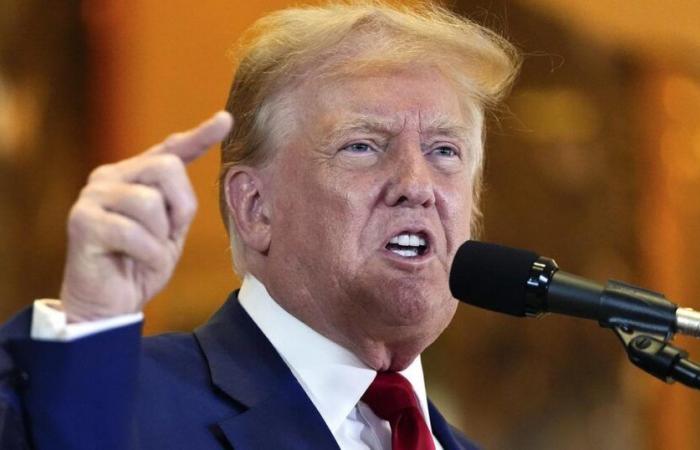US President-elect Donald Trump on Friday threatened the European Union with customs taxes if it does not reduce its trade surplus with Washington by buying oil and gas from it.
“I told the European Union that it must make up its huge deficit with the United States by purchasing our oil and gas on a large scale,” wrote the Republican billionaire in a message on his social network Truth. “Otherwise, it’s CUSTOMS TARIFFS all the way!!!” he threatened.
External content
This external content cannot be displayed because it may collect personal data. To view this content you must authorize the category Services Tiers.
Accept More info
In his comment, Donald Trump seems rather to mention the United States’ trade deficit with the EU. Imports of goods from the EU amounted to $553.3 billion in 2022, while exports from the United States to the Twenty-Seven represented $350.8 billion, according to American figures.
“Strengthen an already strong relationship”
The European Union reacted on Friday by saying it was ready to consider “ways to strengthen an already solid relationship, including by discussing our common interests in the energy sector” with Donald Trump, according to a spokesperson for the European Commission.
The President of the European Commission Ursula von der Leyen had already raised at the beginning of November the possibility that the United States would supply more liquefied natural gas (LNG) to the EU to replace Russian gas.
The EU also emphasizes that the entire trade balance must be taken into account. The EU certainly has a “substantial” trade surplus in goods, but the United States also has a “substantial” surplus in services.
Create commercial bridges
Donald Trump, who takes office in January, has threatened to impose harsh tariffs on U.S. trading partners including Canada, Mexico and China, which could impact the global economy.
>> Read also: Donald Trump announces increased tariffs for China, Canada and Mexico
On December 6, the EU concluded a vast trade agreement with four South American Mercosur countries (Argentina, Brazil, Paraguay, Uruguay) aimed at creating a free trade zone for 700 million consumers.
Ursula von der Leyen then assured that the agreement would create trade bridges at a time when “strong winds are blowing in the opposite direction, towards isolation and fragmentation”, a comment seen as an allusion to Donald Trump’s threats of increase customs duties.
afp/edel
Business






